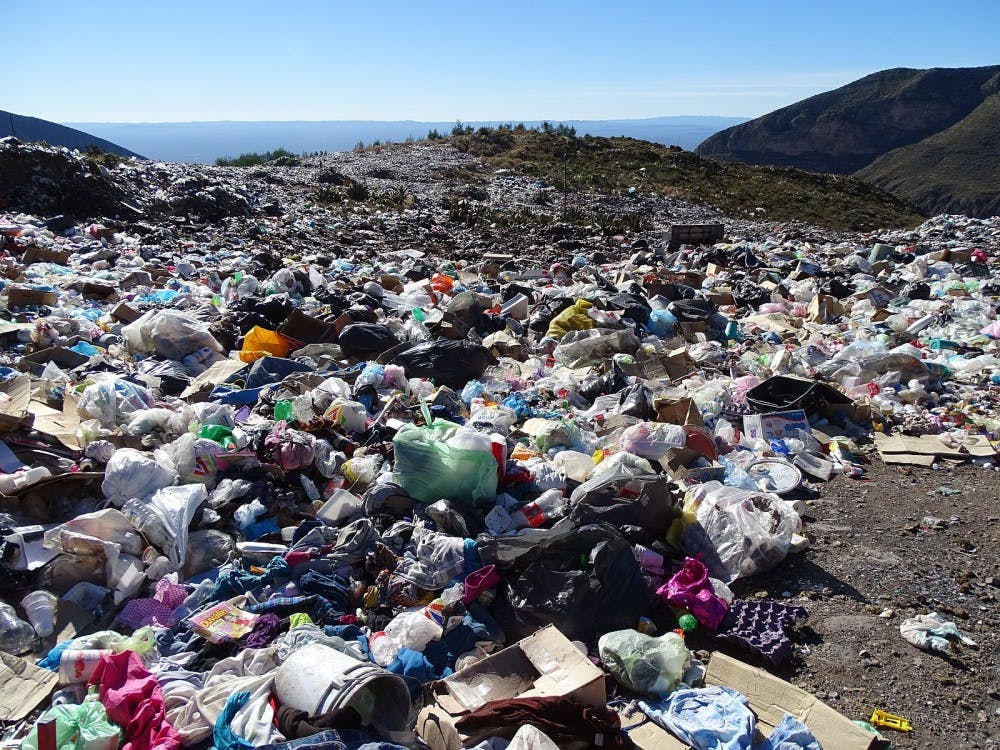When we talk about waste, the debate typically is centered on matters of trash on an individual level — how can we consume less within our households? How can we increase recycling participation? How can we minimize our use and disposal of plastics? These questions are crucial in sparking the conversation about waste and waste management. However, individual efforts to tackle this massive issue of environmentally destructive activities can only take us so far. We are using the wrong tactics as we wage this war on waste — individual action, though commendable and effective in the short-term, offers no sustainable hope for our future. Our “throw-away” society requires systemic change in order to upend the culture of waste that has been ingrained and perpetuated in our economic system.
The idea that our economy not only cultivates, but heavily relies on, our interconnected cycle of consumption and disposal is not only true of our modern strategy for growth and profit. In the early 1960s, when profit opportunities declined in response to the Great Depression and World Wars, solid waste industries “intervened on a material level and developed disposability through planned obsolescence, single-use items, cheap materials, throw-away packaging, fashion, and conspicuous consumption” as Max Liboiron states in her article on subject. This shift in values related to consumption snowballed into production processes that utilized disposability and overconsumption as a means to gain a profit. The changing nature of such processes reaches beyond the realm of production — the consumer has located his role within the new waste regime in such a way that perpetuates the effectiveness of planned obsolescence. That which started as an effort to rejuvenate the economy in the aftermath of economic and cultural devastation became a lifestyle. We are increasingly adopting temporary relationships with consumer products, ultimately validating this deliberate form of waste in our everyday lives.
Just last year, in response to consumers’ outcry against increasing cases of planned obsolescence, France investigated Apple for intentionally slowing their devices and shortening their lifespans so that consumers have to replace them with newer models. Apple claimed that the older models slowed due to the nature of a phone’s battery life over time — however, whether intentional or not, this overwhelmingly contributes to modern waste. The leading business model in this day and age is geared to complement inevitable technological advancements and spur innovation to propel humans forward — but it is implemented at the expense of the environment. An achievement in one sense, but a tragedy in another, for “planned obsolescence has found a perfect partner in conspicuous consumption and together, they have created a culture where consumers favour what is ‘latest’ and ‘on trend’ over durable products with a classic design” as writer Kim Yen White describes. In essence, a linear model — a business model focused solely on convenience and cost effectiveness, excluding efforts to reuse — defines our interaction with products and their capabilities.
Plastic takes the front seat in the revolution of the production process. It’s sleek, it’s cheap to produce, it fulfills our short-term desires of instant gratification. This makes it all the more possible to ignore the consequences we are just beginning to realize. While research illustrating the fact that “there will be more plastic than fish in the world’s oceans by 2050” should be enough of an incentive for businesses to act in an environmentally responsible manner, the challenge is rooted deeper in consumer behavior as a result of the ingrained practices since the 1960s.
Given that our global economy operates according to a linear model, a corporate fight against the waste culture and for circular economic practice is our only hope, as the pace of production shows no sign of abating. In order to overcome the barriers to move away from our “throw-away” society, we have to change the way we think about waste and reinvent the design and production process in the form of circularity. Current efforts to limit waste and reduce the production and consumption of plastic have limited social power, narrowing the sphere of influence and capacity to make consequential change. Circular economies essentially promote the adoption of business models geared toward sustainability and regeneration — “instead of thinking of waste as a zero-value by product of commerce, we encourage businesses to shift their mindset and think of waste as a potential resource stream.” The circular economy offers a sound business framework for the most influential companies, both culturally and economically, to commit to a sustainable future in tandem to the pursuit of profit. And with this shift, we can begin to imagine a society that doesn’t count on trash to make the world go ‘round.
Lucy Siegel is an Opinion Columnist and was an Opinion Editor for the 128th term of The Cavalier Daily. She can be reached at l.siegel@cavalierdaily.com.







